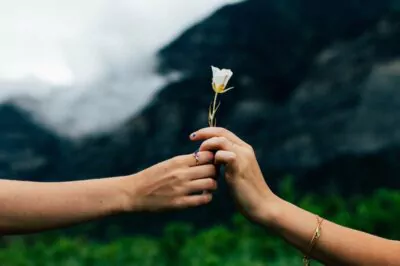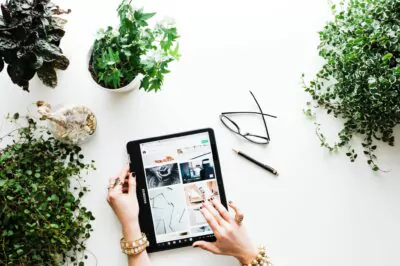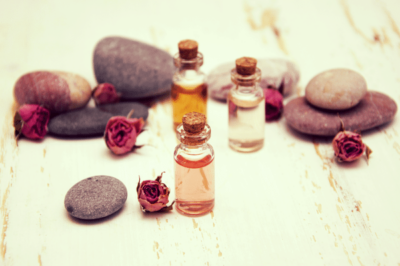Table of Contents[Hide][Show]
“She’s too fat to be eating that?” “Who does she think she is? She’s not even that cute.” “I like that guy, I’m going steal him from his girlfriend.” “Her body is hideous. Why is she wearing that?” “You’d be prettier if you lost 10 pounds.” “I hope she bombs in the meeting today.” “She flat as a board and looks like a child playing dress up.” “Ugh, she looks like a man, no wonder she’s single.” “She has one too many curves for that outfit.” “Why would she go to his room at 3am? She knew what would happen.”
We’ve all been there. The unfortunate victim on the receiving end of an onslaught of unsolicited insults. The “mean girl”, whose sense of entitlement perches her on a pedestal of her own creation, as she verbally scorches anyone who crosses her path.
Or, we’ve been both, victim and aggressor. No matter the role, neither serves as a healthy space for our personal growth. The negative emotional effects of sending and receiving such destructive messages can last the duration of our lifetime. But the cycle doesn’t need to continue. We can counteract these behaviors by replacing them with more positive ones.
I Didn’t Look in the Mirror for a Week: Here’s What I Learned
Messages From Our Youth Mold Us
Our elders take on the responsibility of teaching us how a “lady” should behave and present herself. These messages can come in the form of direct verbal communication from loved ones.
Or, a combination of audio and visual cues that indirectly impact how we interpret our role within society. Despite having our best interest in mind, these messages can often limit our sense of self worth and increase the intensity of our internal critic.
Our weight, beauty (based on societal judgement), successes, ability to carry the burdens of others in addition our own, and others are some of the qualities that are scrutinized. In a KQED interview, Rachel Simmons, co-founder of Girls Leadership discussed some of the reasons there is a shift in how girls perceive themselves.
How we perceive ourselves
While her interview was more focused on causes of depressive behavior in girls, the causes and connected behaviors are linked to our negative behavior towards one another.
“Girls are socialized to think about other people’s feelings and to worry about what other people want.” She added that the reason this can be damaging is because girls feel “If I don’t do everything right, I’m letting people down.”
how this affects us
Regardless of culture or generation, this message has likely been relayed to us in some form. Each of us is affected us differently by what we receive. Then more negative messages are piled on. Until the pile is so unbearable we succumb to it, and eventually internalize every message we’ve received.
Our thoughts of ourselves are no longer our own. We believe what were are told, rather trust what we know of ourselves. This inadvertently creates a spectrum of girls and women, ranging from those whose ability to effectively communicate their needs is stifled, to those who use their words and actions to tear others down.
Unnecessary Rivalry
During the previously mentioned interview, there was also mention of girls having the lowest self compassion than any other youth group. “Hurt people, hurt people” is the phrase that resonated in my mind upon hearing this statement. While it’s extremely heartbreaking to hear, it’s also very revealing.
How this carries into adulthood
It adds insight to some of the mean behavior that thrives during adolescence, and carries over over into adulthood. The negative behavior often comes in the form of negative competitiveness(related to looks, success, and men to name a few) and personal resentment.
I was in a conversation with an employee’s wife (at a company party) that felt negative. I felt that she was trying to show she was a woman of power. She was looking down on me for some reason, and at the same time I felt she was jealous. Her tone was slightly condescending. Whether it was all in my head or not, the feeling of being dragged down by another woman was real.
– S. O.
More hurtful experiences can come from so-called friends and loved ones:
…a series of jabs and digs when totaled resulted in feelings of self doubt, anxiousness, and instability. For example, sharing a personal success could result in the other party saying ‘that’s not so great’ or acting uninterested in what you have to say. It definitely made me feel small and not valued as a person
– L. F.
how this permeates our lives
These emotionally exhausting experiences affect all parties involved. For those of us with deep seeded unhappiness that hasn’t been addressed, the negativity can permeate into other areas of our life.
Fueling our personal battles with insecurity, low self-esteem, low body image, and self worth based on a decision we’ve made about the other woman in relation to ourselves – “she has something I don’t, and I resent her for it.” We pick each other apart, piece by piece until there is nothing left but hurt feelings.
Lead with Self-Love
In order to be better for others, we need to better for ourselves. This is a crucial step in improving our interactions with other women. Self-love is a way of showing ourselves patience and understanding when it comes to personal mistakes and missteps.
Most importantly, it’s practicing personal compassion.
how we can evaluate our own behaviors
We can then begin to understand why we either allowed negative treatment from other women, or why we’re the agitators. Most of our negative behaviors towards other women are projections of our pain and insecurity. We start asking the necessary questions: Why am I so threatened by how this woman is dressed? Why can’t I be more supportive of women who need my support? Why do I judge her based on appearances alone?
The other side could be questions like: Why didn’t push back on the comments? Why am I allowing these women to dictate my emotions? The list of questions we may need to ask ourselves is endless. Answering these questions honestly will enable you come up with action plans that allows you a more positive reaction with the women you encounter.
This doesn’t mean every encounter will now be positive. But you will have a better handle on your own emotional response, impeding the desire to tear other women down. Often when we understand our pain, we are more inclined to be empathetic to those around us. We can see ourselves in others, easing us into more connections.
being honest with ourselves
The journey of self-love causes us to take an honest assessment of what we need to heal within ourselves. Sometimes introspection is enough, other times we may need to talk to a professional. Whichever route we choose, the end goal is getting to healthier emotional space. This healthier space with improve our self-worth, making us more comfortable in our own skin.
We limits our comparisons to others by “keeping our eyes on our own paper”, according to Dr. joy Bradford. She says a good practice of self-love is to focus on what makes happy, and not get caught in the trap comparing our lives to others.
Find Your Tribe & Support Each Other
Despite some of the negativity experience, there is nothing like female friendships. Women reign supreme when it comes to creating a nurturing and supportive environment.
The quality of people we choose to surround ourselves with is typically a direct result of self-love practices. Relationships that provide us with the necessary love and support we need can be extremely beneficial to our physical, mental ,and emotional well-being.
how do the people around you make you feel?
It may not be a an easy exercise of exorcising those who don’t contribute positive energy, but it is very necessary. E. J. explains her experience:
It’s been a journey for me to be conscious about who I allow into my space energetically. The gauge I use now is examining how I feel after I spend time with someone. Does that person make me feel drained? Happy? Inspired? Joyful? I have been extremely lucky to cultivate friendships with women who I can share my success, failures, fears, and emotions with. It makes me feel grateful, grounded, and supported to have these women in my life. Most of all, it’s freeing to be able to be yourself around others and to be fully understood without fear of judgement.
– E. J.
When creating your tribe, keep an open heart an open mind. Don’t limit the love by bracing for the blow of negativity we’ve previously experienced. This is definitely easier to say, than put into practice. But, practice makes perfect. I had to learn forgiveness, due to the negative treatment I had received from certain groups of women in my past.
growing your network
Although it was difficult, healing and letting go of past hurt allowed to view each new experience on a case by case basis. I’m thankful for this growth because my support network grew. I now have an amazing group of women who come from various backgrounds who brings her own unique set of experiences and insights.
We are all available to each other, bringing to the table what we have to offer – mentoring, support, and being each other’s cheerleader. Sometimes just sharing the events of the day are all that is needed.
Lift Her Up
Whether it’s at work or in your personal life, spreading positive energy and support creates an environment of sisterhood. Speaking up in support for another woman in distress, or simply refraining from participating in unsolicited verbal attacks can also be seen as a show of support.
building support systems
Often times, the simplest acts can show another woman we are not her enemy. These support systems can be very critical in environments where women are the minority. Especially at work:
My female manager really helped me to grow professionally thus far. The most recent positive experience was helping me create a special work arrangement after listening to me about how I wanted some time to re-focus in life and take a break after a bad year. She helped me figure out what I wanted / what would work better for me with the company while building me up.
– S. S.
When your coworker asks you to proofread an important email, don’t throw her under the bus by not mentioning the typos you’ve noticed. Don’t shun her for receiving a well deserved promotion because you weren’t chosen. Diane von Furstenberg once said said, “I really feel you don’t have to be a b—- to be successful.”
being mindful of one another
When these kind of words come from a woman who has attained success that has lasted decades, we should be mindful of how we treat other. Will we like every woman we encounter? Of course not. We’re all human, and have different tastes and preferences in personality traits. Should we stop competing with other? It’s depends on what we are competing for and how we choose to compete.
We need to be okay with lifting each up. Celebrating the wins of peers does not lessen our shine. Rather than allow jealousy to slither its way into your thoughts, take note of how she accomplished her goal. Don’t take her successes as a personal attack. Even if you haven’t yet attained your desired level of success, cheer her on.
extending support
In my experience, the majority of the woman I have known who rose to higher levels were more likely than men to extend a hand of support. If you recognize something beautiful about another woman(clothes, face, hair, etc), it doesn’t hurt to give her compliment. Acknowledging her light doesn’t dim yours.
If we have the ability come together on a grand scale for rallies, protests, and marches. Eliciting change that has improved the lives of women worldwide. We should be able to meet each other with kindness, love, and support in our day-to-day lives. The small acts really matter. I wouldn’t have been afforded some of the opportunities I’ve attained, if not for the generosity and support of other woman.
People will forget what you said. People will forget what you did. But people will never forget how you made them feel.
– Maya Angelou
I Didn’t Look in the Mirror for a Week: Here’s What I Learned








Leave a Reply